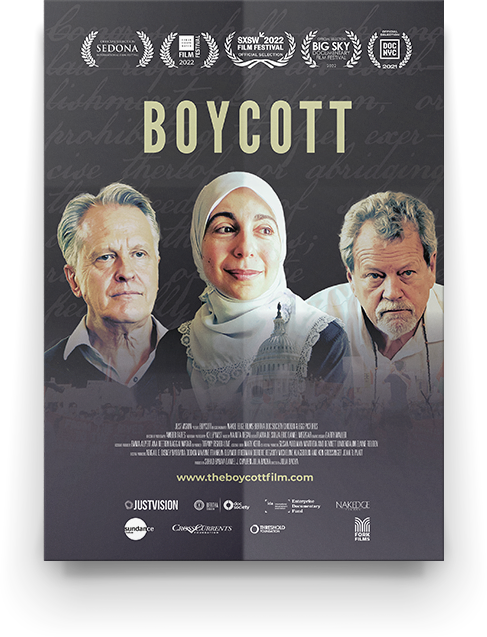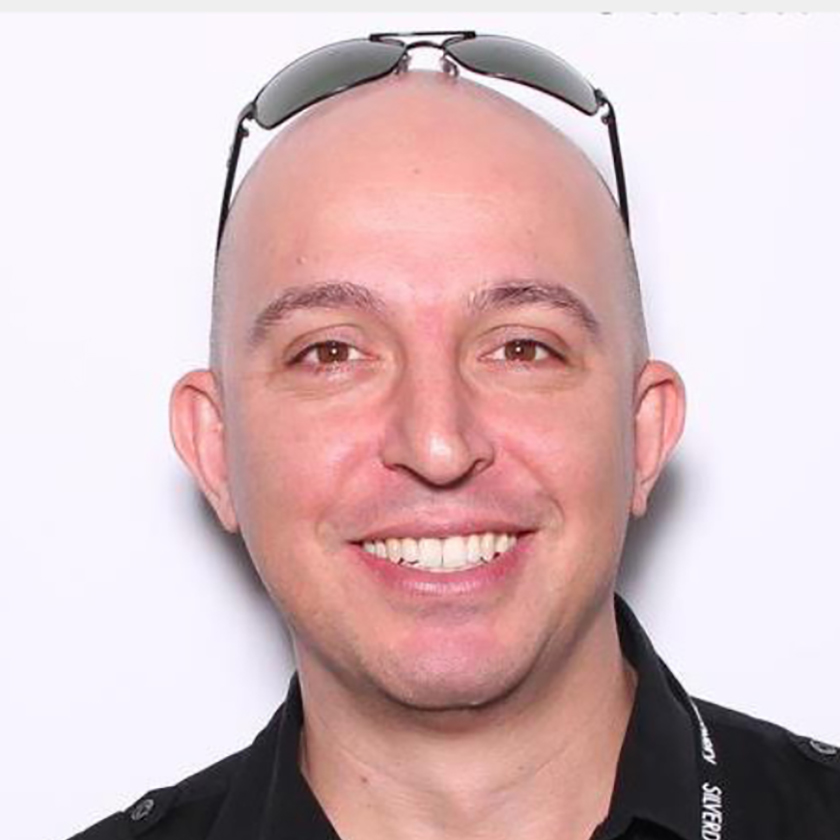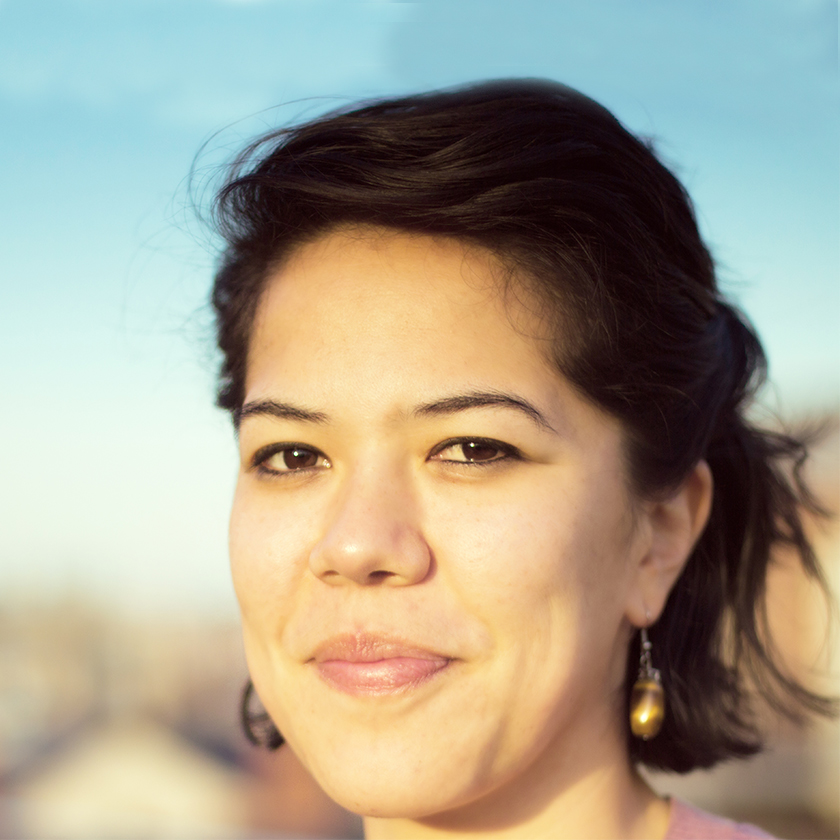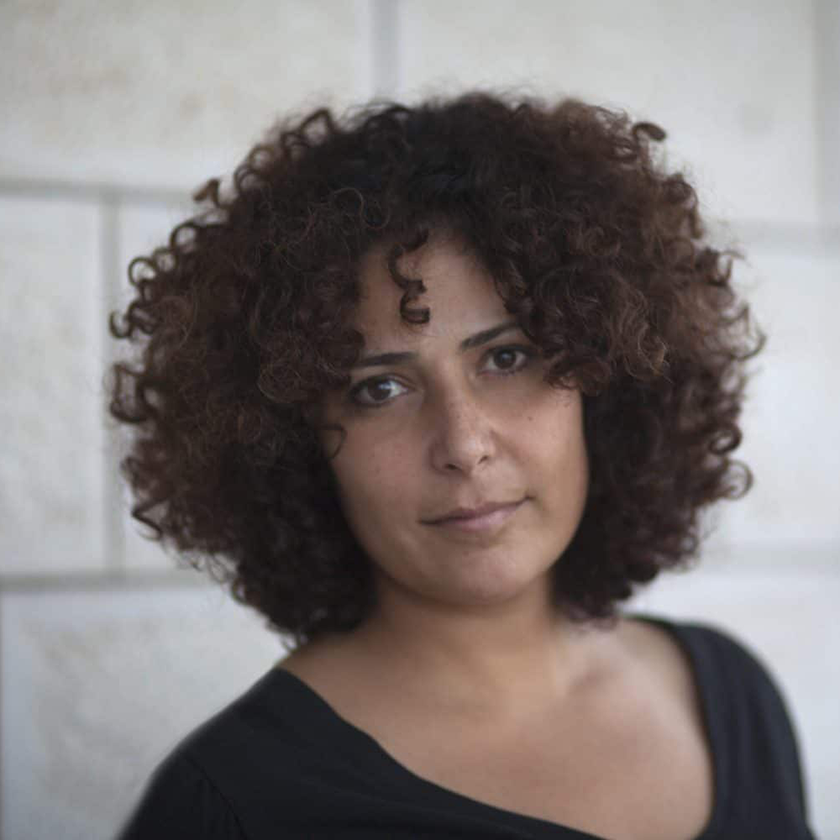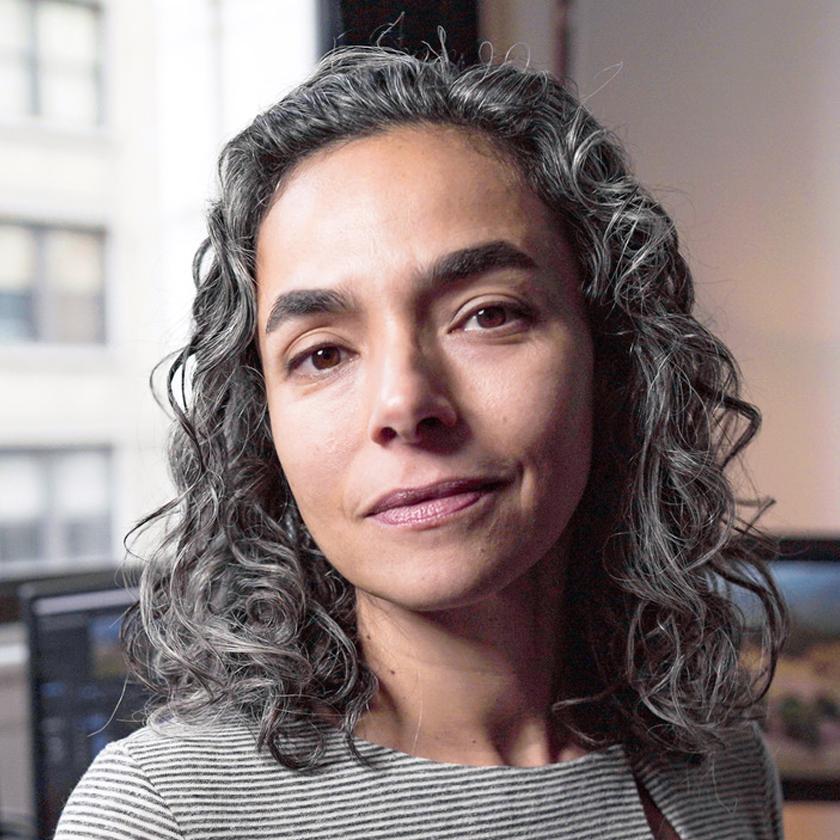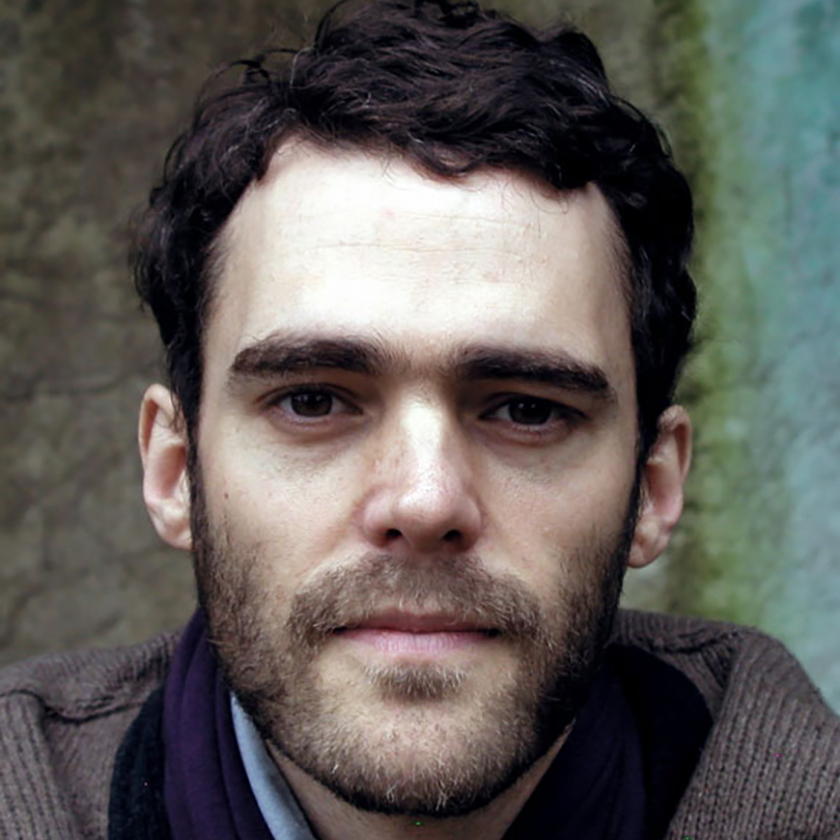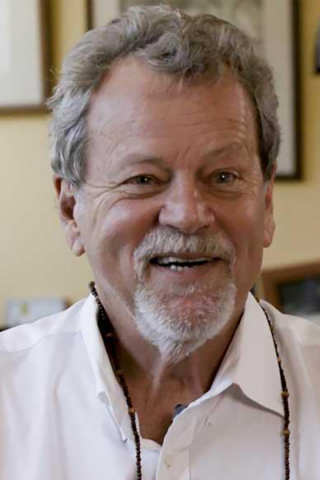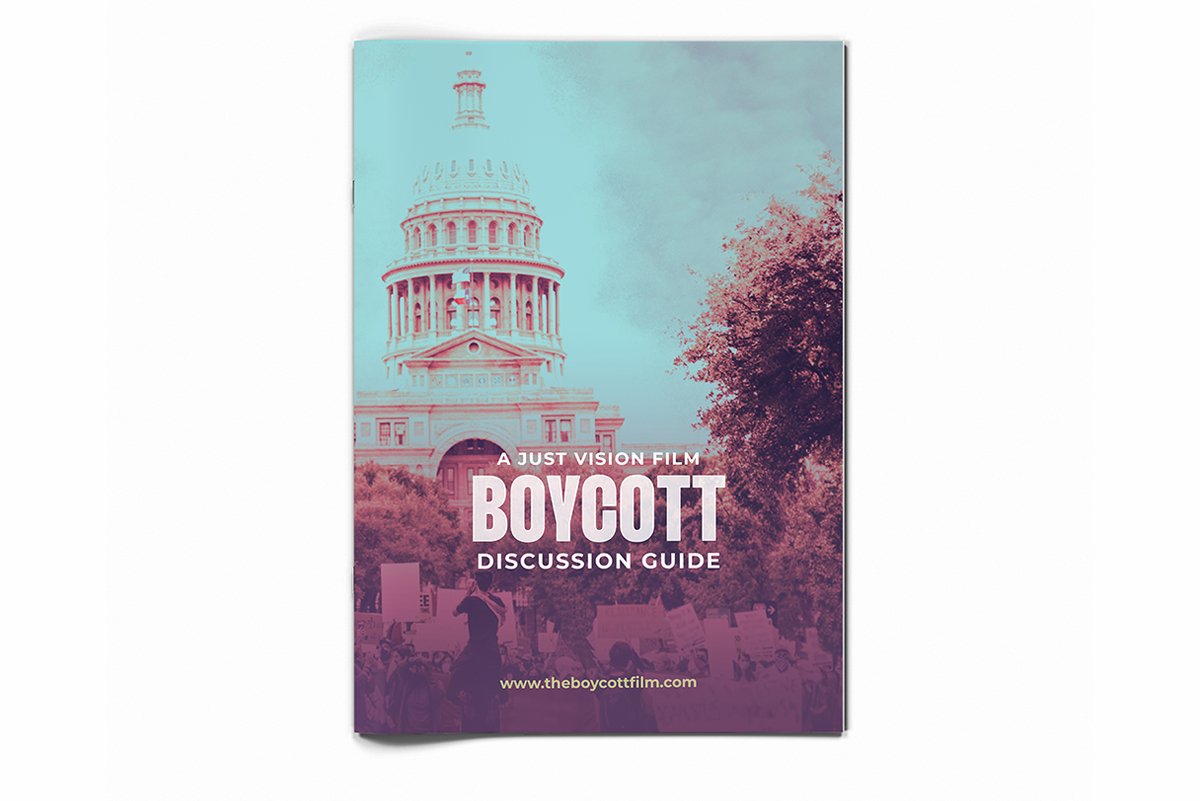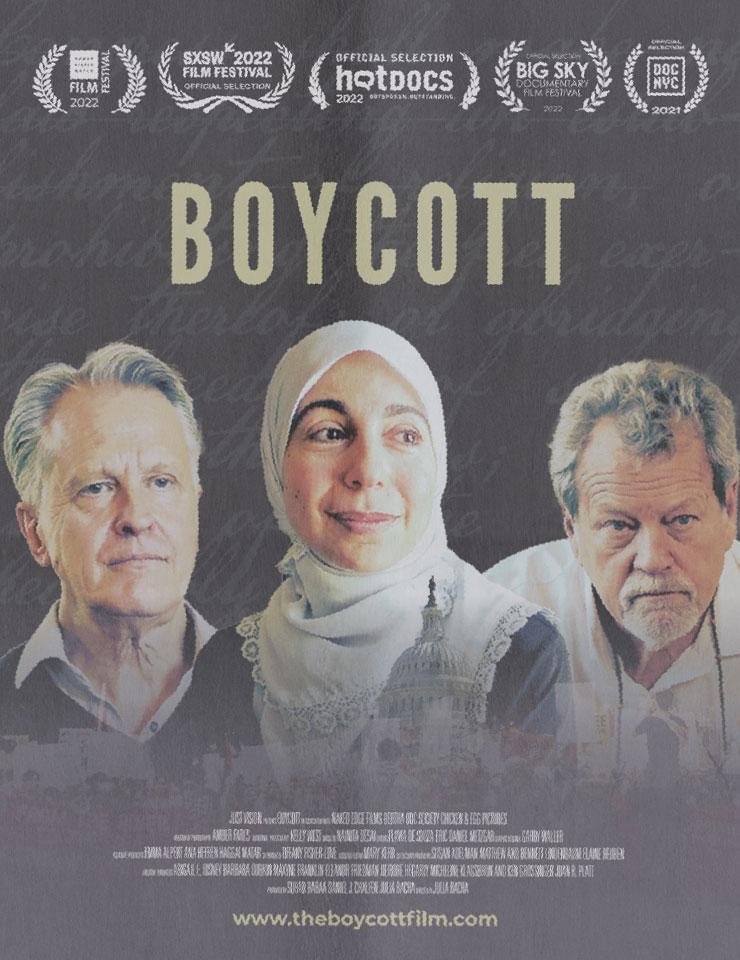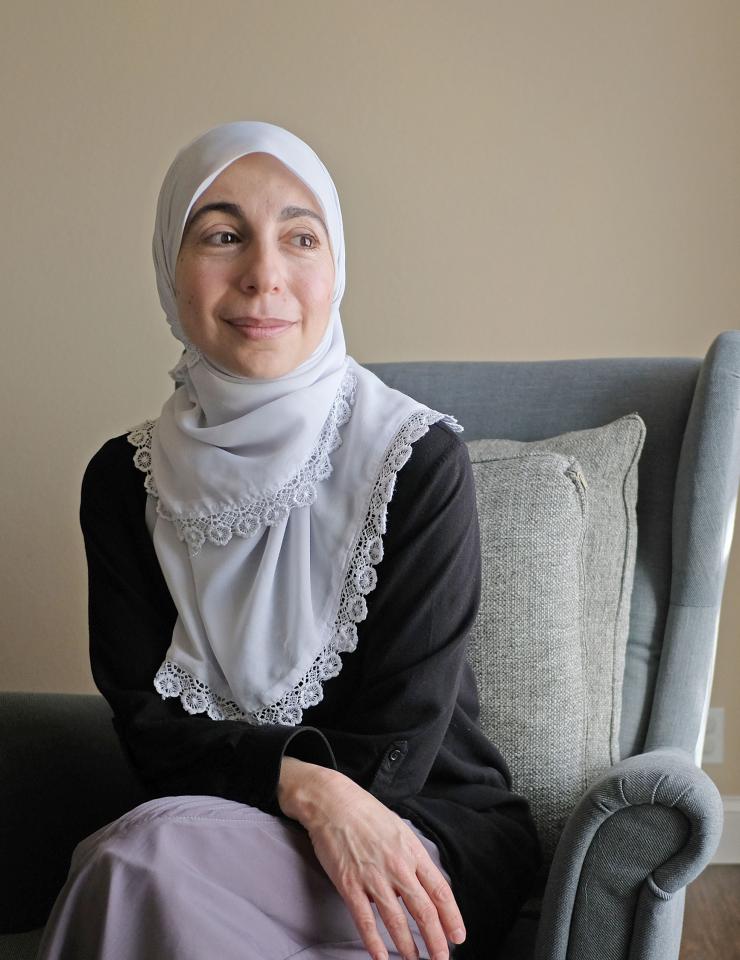
Just Vision Presents
Boycott
Directed by Julia Bacha
Produced by Suhad Babaa, Daniel Chalfen, and Julia Bacha
As this wave of anti-boycott legislation has swept through the country, so has a counter-wave in defense of freedom of speech. Everyday Americans are challenging these laws for their constitutionality in a nation-wide battle likely to go all the way to the Supreme Court.
With full access to the plaintiffs and in revelatory moments with elected officials, Boycott chronicles one of the most consequential First Amendment battles of the past few decades and investigates the question – how did we get here?
Our story weaves through the personal histories and legal battles of three “accidental plaintiffs” across the US. Mikkel Jordahl, an attorney in Arizona, provides legal services to incarcerated persons. When the time comes to renew his contract with the state, he is shocked to discover a new clause requiring that he certify that he will not engage in a boycott of Israel. Reflecting on what he considers government overreach and with the impact of a father-son visit to Israel and the Occupied Palestinian Territories still fresh in his mind, Mikkel decides that he cannot sign the contract in good conscience. He sues the State of Arizona.
Around the same time, Bahia Amawi, a childhood speech therapist in Texas’s public school system, finds herself unemployed following her refusal to sign the state’s anti-boycott pledge. Shaped by her family history and driven by a commitment to safeguard the right to free speech for her daughters and future generations, Bahia launches a suit against the State of Texas.
Alan Leveritt, the publisher of the Arkansas Times, learns of his state’s anti-boycott law when he is told by the University of Arkansas that the state-funded university cannot pay for ads in his newspaper if he doesn’t sign Arkansas’s anti-boycott pledge. Influenced by his belief that the government has no business forcing individuals to adhere to certain political agendas and recognizing that the law forces the Arkansas Times to compromise its journalistic integrity, Alan makes the difficult decision to launch a suit against the State of Arkansas.
As the film unfolds, the larger implications of the anti-boycott bills are interwoven with the stories of our protagonists. We meet several individuals who are proponents of these laws, including State Senator Bart Hester of Arkansas, whose Christian faith drives his support for the legislation. We also hear from Itamar Benzaquen, an Israeli journalist whose investigative research helps us understand the rapid spread of anti-boycott bills, raising the question: in whose interest are these laws being passed?
Providing rich context on the origins of the anti-boycott bills, the narrative arc of the film is set by the personal journeys of our three protagonists. Moving from the Arizona desert to a mosque in Texas, from the ACLU headquarters in NYC to a family farm in Arkansas, the film chronicles the courage of three Americans as they defend freedom of expression, and lays bare what’s at stake – our constitutionally-protected right to boycott – if they are defeated.
For the past 18 years, we’ve been making films about everyday people going up against extraordinary odds in the struggle for justice, equity and dignity in Israel-Palestine. As we followed this thread in an era of unprecedented democratic backsliding, we noticed a troubling trend: attempts to silence voices of dissent on Israel-Palestine have taken root far beyond the region, with governments in the United States and Europe leading the charge. The trend is especially sharp in local legislatures across America, where 37 states have laws on the books that aim to silence those boycotting Israel based on its human rights record. More than ever, Israel-Palestine has entered the backyards of everyday Americans.
Boycotts have long been a tool used by Americans rallying for social and political change, from farmworkers to civil rights leaders to anti-apartheid activists. Not only that, the Supreme Court – in a landmark 1982 ruling – identified that boycotts were one of the highest forms of protected political speech under the First Amendment. So as filmmakers, we had to ask: how and why had boycotts suddenly become such a threat to state governments across the US? And what impact might anti-boycott legislation have on everyday Americans – not only those taking part in boycotts of Israel, but also those expressing political views on a whole range of issues, from environmental justice to racial justice and beyond?
We found answers to those questions – and unearthed many more – while following the stories of Mikkel Jordahl, Alan Leveritt and Bahia Amawi. As ordinary citizens embroiled in high-stakes constitutional battles, their stories remind us how personal and widespread the implications of anti-boycott legislation are.
As we uncovered the network of supporters and architects of the bills, we also came across some surprising alliances. Traditional Israel lobbying organizations were working in lockstep with fundamentalist right-wing organizations, with the support from several other organizations, including a prominent pro-business organization that has worked on developing model legislation on a wide-range of issues that impacts communities across the country. Their declared aim – to fight the Boycott, Divestment, Sanctions (BDS) movement, a movement that emerged in 2005 as Palestinian civil society called on the international community to hold Israel accountable for its human rights abuses.
Anti-boycott laws are a Pandora’s box that could be used to silence voices of dissent on a whole range of issues. Indeed, lawmakers are now actively citing legislation banning boycotts of Israel as their inspiration for similar laws punishing those who boycott the gun industry or divest from fossil fuels. Many other anti-protest laws, most flying under the radar, are targeting the Movement for Black Lives and indigenous rights activists.
Boycott lays bare what is at stake for everyday American citizens. It also shows the power of courageous individuals who are taking on great risk to stand up for the rights of all. Their stories cut to the heart of a pressing national issue and illustrate how the right to free speech could be redefined across our society for generations to come.
Filmmakers
Team
DIRECTED BY
Julia Bacha
PRODUCED BY
Suhad Babaa
Daniel J. Chalfen
Julia Bacha
DIRECTOR OF PHOTOGRAPHY
Amber Fares
ADDITIONAL PHOTOGRAPHY BY
Kelly West
EDITED BY
Flávia De Souza
Eric Daniel Metzgar
MUSIC BY
Nainita Desai
GRAPHIC DESIGNER
Garry Waller
EXECUTIVE PRODUCERS
Abigail E. Disney
Barbara Dobkin
Maxyne Franklin
Eleanor Friedman
Deirdre Hegarty
Micheline Klagsbrun and Ken Grossinger
Joan R. Platt
CO-EXECUTIVE PRODUCERS
Susan Adelman
Matthew and Bennett Lindenbaum
Elaine Reuben
CO-PRODUCER
Tiffany Fisher-Love
ASSOCIATE EDITOR
Mary Kerr
ASSOCIATE PRODUCERS
Emma Alpert
Ana Heeren
Haggai Matar
FIELD PRODUCERS
Keren Manor
Rebekah Wingert-Jabi
ARCHIVAL PRODUCERS
Tiffany Fisher-Love
Keren Manor
ARCHIVAL RESEARCHER
Mary Kerr
CONSULTING EDITOR
Mona Eldaief
ADDITIONAL CAMERA
Amit Chachamov
Asad Faruqi
Christina Wairegi
Nate Disarro
Sheila Smith
Stephen T. Maing
Talal Jabari
SOUND
Aisha Hallgren
Alexander Beasley
Amber Fares
Kelly West
Rodrigo Salvatierra
Sharon Luzon
Steve Boehme
ADDITIONAL GRAPHIC DESIGNER
Michael Heid
RESEARCHERS
Eness Elias
Guy Yadin Evron
LIGHT
Yotam Eytan
TRANSLATORS
Mo Nassar
Shoshana London Sappir
ADDITIONAL MUSIC
Javier Blanco-Lago
CLEARANCE COUNSEL
Donaldson Callif Perez LLP
Lisa A. Callif
Madison Karsenty
Natalie Locke
IN ASSOCIATION WITH
Naked Edge Films
Bertha Doc Society
Chicken & Egg Pictures
SUPPORTED BY
Sundance Institute
International Documentary Association
ADDITIONAL FUNDING PROVIDED BY
Fork Films
Threshold Foundation
CrossCurrents Foundation
Meet
The Protagonists
Team
Brian Hauss is an up-and-coming lawyer with the American Civil Liberties Union. Brian is stunned that boycotts, an act he believes to be core to American democracy – from the colonial era boycott of British goods to the civil rights era boycotts to end Jim Crow laws – is at risk nationwide.
Laiken Jordahl
Laiken Jordahl is Mik’s son and an environmental and social justice activist. Laiken grew up in the Jewish tradition and reflects on his bond to his grandparents and the injustices he and his father witnessed when visiting the Occupied Palestinian Territories.
Vince Warren
Vince Warren is the Executive Director of the Center for Constitutional Rights, a group that has been investigating the role of the pro-business organization, American Legislative Exchange Council (ALEC), in passing anti-boycott laws across the country.
Itamar Benzaquen
Itamar Benzaquen is a reporter for The Seventh Eye, an Israeli investigative magazine devoted to journalism, the media, freedom of speech and transparency.
Senator Bart Hester
Senator Bart Hester is the Republican Majority Leader of the State Senate in Arkansas. He is the proud sponsor of the Arkansas anti-boycott bill and speaks about his motivation to sponsor the bill, introducing us to a network that is determined to help lawmakers replicate these bills in state legislatures across the country.
Lara Friedman
Lara Friedman is the president of the Foundation for Middle East Peace, a Washington-based organization promoting a just resolution to the Israeli-Palestinian conflict.
Dima Khalidi
Dima Khalidi is the founder and director of Palestine Legal, a group that provides legal advice and litigation support to individuals and communities who stand up for justice in Palestine.
Peter Beinart
Columnist, journalist and political commentator, a regular contributor to The New York Times and frequent commentator on CNN.
Rabbi Barry Block
Rabbi of Congregation B’nai Israel, the largest synagogue in Arkansas.
Resource Hub
Discussion Guide
This discussion guide is a comprehensive resource designed for people who are looking to engage in meaningful conversation with their communities around the critical issues that Boycott grapples with. You'll find helpful questions for discussion as well as important context on the history of boycotts as a tool for social change, the origins and implications of anti-boycott legislation, the efforts of individuals and communities to protect our right to voice dissent and more. You will also find information about the protagonists, a guide to facilitation and various support materials. We encourage you to use this guide alongside our other resources.

